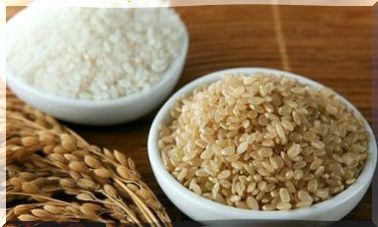5 Digestive Disorders That Can Influence Being Overweight
Did you know that constipation can be one of the causes of a bloated belly and difficulty in losing weight? Excess waste affects the functioning of the metabolism.

In addition to poor eating habits, sedentary lifestyle, hormonal changes and metabolic difficulties, there are several digestive disorders that can influence being overweight.
In fact, some patients suffer from this condition due to the poor work of the digestive system, since its functions are decisive for correctly breaking down fats and absorbing nutrients.
For this reason, although it is always essential to review the diet and consult the doctor immediately, some disorders must be considered as possible culprits. Identify them!
1. Gastroesophageal reflux

Gastroesophageal reflux is another digestive disorder that can influence being overweight and causes an uncomfortable burning sensation in the chest due to the return of acidic juices into the esophagus.
According to a study carried out by Dr. Antonio Spaventa Ibarrola, an expert in General Surgery from Mexico City, there is an association between people suffering from gastroesophageal reflux and obesity. In this sense, surgery is often the most appropriate treatment when it comes to severe pathology.
recommendations
- Control reflux symptoms with natural herbal teas or low-calorie home remedies.
- Also, avoid eating greasy or irritating foods. These, far from alleviating the problem, make it worse.
- Reach a suitable weight.
2. Ulcers
Ulcers are lesions that usually develop on the lining of the stomach or small intestine. They are the most common consequence of excessive acid production. In this sense, they can influence weight gain due to the fact that they lead to episodes of anxiety about eating. Indeed, ulcers manifest with abdominal swelling and dyspepsia.
recommendations
- First of all, exclude dairy, spicy and other irritating foods from the diet.
- Likewise, increase the consumption of water and digestive infusions.
- Of course, follow the doctor’s instructions.
3. Constipation

According to the Spanish Association of Coloproctology, constipation is not a disease. Rather, a chronic or isolated symptom of waste accumulation in the intestine. It also affects the stool stool. Being considered normal a margin between three stools a day and one every three days.
Thus, it is considered another of the digestive disorders that most influence overweight. In this sense, excess waste can hinder results when trying to lose weight.
recommendations
- First, increase your intake of dietary fiber. To do this, do not hesitate to incorporate fresh vegetables, fruits and whole grains.
- Also, consume between 6 or 8 glasses of water a day. The consumption of water helps to hydrate the food bolus and the subsequent evacuation of the stool.
- Of course, get regular exercise. Minimum 30 minutes daily.
- On the other hand, you can prepare natural laxatives. Either in infusions or smoothies. Although you have to be careful and not abuse this remedy.
4. Alteration of the bacterial flora
Alterations in the microbiota or bacterial flora are another of the influencing factors in weight gain. In effect, they interfere with the rhythm of metabolism and, in turn, create difficulties in absorbing and correctly using the nutrients that come from food.
These imbalances occur because microorganisms grow excessively or because they reduce their presence. As a consequence, problems such as constipation are generated and, in addition, the tendency to accumulate fat increases.
recommendations
- First of all, avoid excessive consumption of fats, refined flours, sugars, etc.
- Also, increase the consumption of probiotics such as plain yogurt or fermented cabbages.
- On the other hand, drink between 1.5 and 2 liters of water every day.
5. Irritable bowel syndrome

Irritable bowel syndrome is a gastrointestinal condition that, due to poor eating habits, has increased considerably in recent years.
Its appearance is accompanied by other difficulties in the digestive system. These include inflammatory imbalances and changes in microbial flora, as well as diarrhea. It can cause constipation, abdominal bloating and difficulties in digesting some foods.
Thus, in case of ignoring its symptoms and not treating it, patients can gain weight and feel sick on a recurring basis.
recommendations
- First, consult your doctor if you suspect this condition.
- In addition, it incorporates probiotic foods and sources of digestive enzymes in the diet.
- Also avoid inflammatory foods and drinks.
- Finally, one of the main recommendations is to reduce stress levels.
Can you identify any of these digestive problems? If you have symptoms that any of these digestive disorders may influence overweight or you suspect that you are not losing weight due to any of them, do not hesitate to consult your doctor to receive a more precise diagnosis.
In any case, you should not forget an important detail: it may be that being overweight or obese is the cause of these digestive problems, and not the other way around. In this sense, try to eat a balanced diet, stay hydrated, exercise and, of course, maintain good lifestyle habits.









